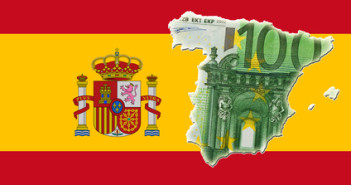Spain had a winning streak of bond auctions. It managed to sell more bonds than expected and with falling yields. One reason is the high hopes for the new government, set to assume power soon.
Yields rose towards the elections and have been falling since then. Yet not only the high expectations send money towards the euro-zone’s fourth largest economy. The ECB also has a part in this:
In the recent rate decision, Mario Draghi announced quite a few steps to ease the pressure on European banks. The central bank announced new 3 year LTRO operations, with “full allotment”, meaning unlimited amounts of money.
In order to get funding by the ECB, the banks need to pledge collateral. Also in this field, the ECB lowered the bar and now accepts bonds of lower grade as collateral.
Spanish bonds were relatively cheap (high yields) and attracted buyers. So, banks could buy cheap bonds, pledge them as collateral and get money from the ECB at low interest rates.
Spanish bonds were so attractive, that their actual prices reached in bond auctions were much lower than in previous auctions. This was felt in a first short term auction, a second long term auction and now with 6 month yields dropping under 2.5% in a third successful auction.
This is seen also in the secondary market, with 10 year yields getting close to only 5%.
So all in all, the ECB provides cheap money that lowers bond yields.
Yes, it is doing it indirectly, and with an official purpose of providing liquidity within its mandate and not financing governments, which is beyond its mandate.
This indirect QE isn’t without risk, but at least for now, it has some positive results.
Further reading: Spanish Election Results – Not Necessarily Market Friendly
